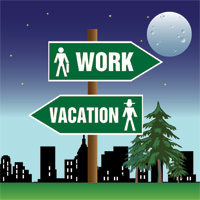Academic Research High and Low Times
 - Seasonality of Writing
- Seasonality of WritingBy its nature, academic writing follows the same general yearly cycle that colleges and universities do. The traditional college schedule has students in school from September through mid-December, and then January through the end of April or May, with variations of course. In between there are breaks for the typical holidays, some schools add interesting twists such as a January Term, and certainly there are students who take summer classes. For the most part, though, academic writers can expect to be busiest during the times when most students are in session, and slowest when they are not.
For the full-time academic writer, this means taking on as much work as humanly possible during the heaviest months (October through December and March through May), taking a steady stream of jobs during the slower months when school is still in session, and then doing whatever necessary during that big project wasteland called summer.
What Happens in the Summer?
In the summer, most students stay away from school. The exceptions include online students who tend to continue around the year, highly motivated students who are getting ahead in the summers, and graduate-level students who are working on their master’s theses or doctoral dissertations. This means that, apart from these (small) streams of work, projects tend to dry up considerably in the summer. No projects means no work for academic writers, which can be a scary prospect. However, it need not be a problem if you plan right.
What Can I Do To Keep Myself in Work Year-Round?
The first tip for academic writers who want to take on projects year-round is to expand and be flexible. This means be willing to work on dissertations, and be willing to take on projects that are in subjects outside of your comfort zones. It also means filling in gaps with very small projects you might ordinarily avoid, such as one or two page model papers.
The second tip is to start preparing for summer long before summer. There are many professions that are seasonal in nature, from farming to ski tourism, and those who work in these professions plan ahead. They make as much money as they can during the on season, and save for leaner times. The more work you can take on in the fall and spring semesters – and the more money you can save in those times – the less you have to worry about a drop in projects in the summer months.
That gives you the chance to have a real vacation if you like in the summer. That doesn’t necessarily mean sitting on a beach for three months, but it could! It can also mean spending more time writing that novel you’ve been too busy to work on, or finding freelance projects in other areas (such as grants or magazine articles).
Regardless of your exact approach, tens of thousands of academic writers make this a full-time job, and you can too, with some thought and planning.